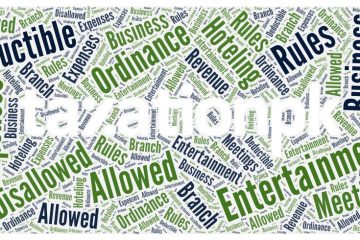The concept of sustainable development has become increasingly important in recent years, with a growing recognition that economic growth must be balanced with social and environmental considerations. Taxation plays a crucial role in achieving sustainable development, as it provides the revenue necessary to fund social and environmental programs. In this article, we will explore the relationship between taxation and sustainable development in Pakistan.
Taxation in Pakistan
The tax system in Pakistan is governed by the Federal Board of Revenue (FBR), which administers tax laws and collects revenue for the government. The two primary taxes in Pakistan are income tax and sales tax. The income tax system is based on a progressive tax rate, with higher earners paying a higher percentage of their income in tax. The sales tax system is a value-added tax (VAT) system, with tax being charged at each stage of the production and distribution process.
Sustainable Development in Pakistan
Pakistan has made significant progress in recent years towards achieving sustainable development. The government has implemented a number of policies aimed at promoting economic growth, reducing poverty, and protecting the environment. For example, the government has launched a number of initiatives to promote renewable energy, such as the Alternative Energy Development Board, which aims to increase the share of renewable energy in Pakistan’s energy mix.
The Role of Taxation in Sustainable Development
Taxation plays a crucial role in achieving sustainable development, as it provides the revenue necessary to fund social and environmental programs. In Pakistan, tax revenue is used to fund a range of programs aimed at promoting sustainable development, such as education, healthcare, and environmental protection.
Taxation and Environmental Protection
Taxation can be used as a tool for environmental protection by imposing taxes on activities that have a negative impact on the environment. In Pakistan, the government has implemented a number of environmental taxes, such as a carbon tax on fossil fuels and a tax on plastic bags. These taxes provide an incentive for individuals and companies to reduce their environmental impact, while also generating revenue for environmental programs.
Taxation and Poverty Reduction
Taxation can also be used as a tool for poverty reduction by providing the revenue necessary to fund social programs aimed at reducing poverty. In Pakistan, tax revenue is used to fund a range of poverty reduction programs, such as the Benazir Income Support Program, which provides cash transfers to poor households.
Conclusion
In conclusion, taxation plays a crucial role in achieving sustainable development in Pakistan. Tax revenue provides the funding necessary to support social and environmental programs aimed at promoting sustainable development. By implementing environmental taxes and using tax revenue to fund poverty reduction programs, the government of Pakistan is taking important steps towards achieving sustainable development. It is important for individuals and companies in Pakistan to understand their tax obligations and to support the government’s efforts towards achieving sustainable development.






